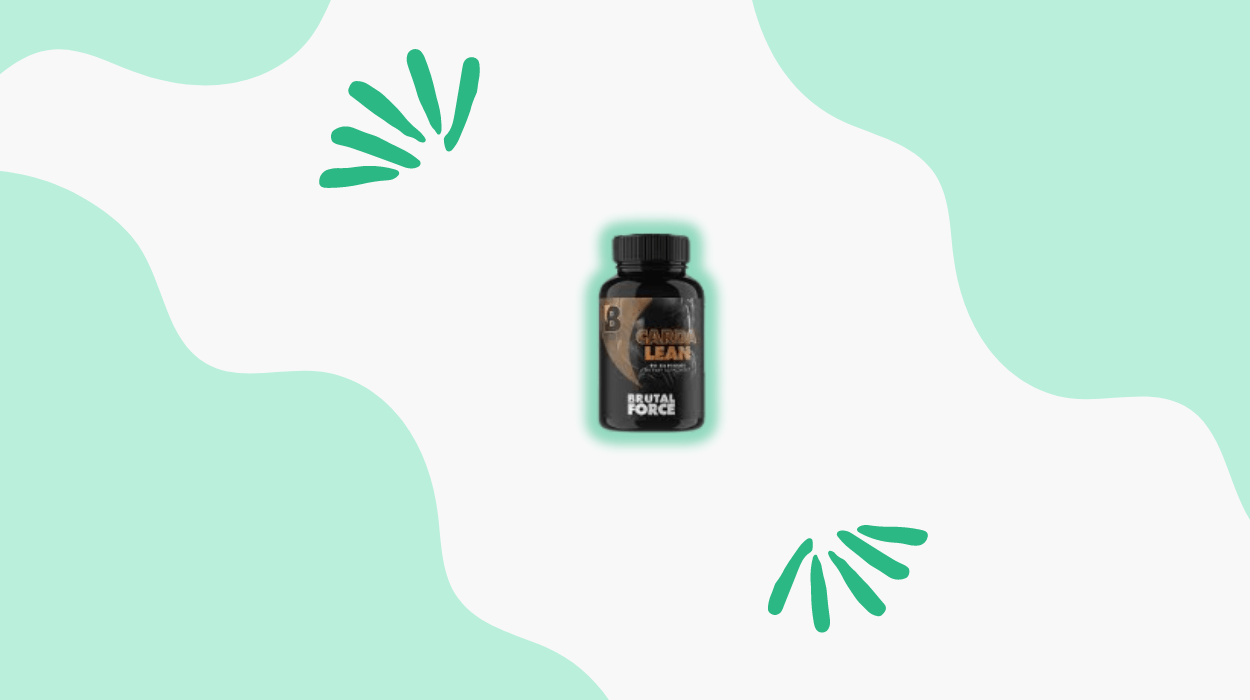

Excess gas in your digestive tract may cause a stabbing sensation in your abdomen, or sometimes, the discomfort may radiate to the chest. It could result in people experiencing unpleasant symptoms like bloating, belching, or flatulence.
Gas and flatulence are parts of normal digestive processes. However, excessive gassiness may induce abdominal pain and discomfort. Understanding the causes and finding relief through home remedies is essential for managing trapped gas effectively.
This article will give you some of the best evidence-based home remedies to eliminate trapped gas from the stomach. It will discuss the causes of excessive gassiness, prevention strategies, and signs of trapped gas requiring medical attention.
Trapped gas is the unreleased gas in the intestines or the digestive tract. It may cause bloating, gastrointestinal discomfort, and sometimes even pain. It occurs when gas gets trapped and cannot pass through the digestive system.
Gas may become trapped due to excessive accumulation in the digestive system. Swallowing air through activities like chewing gum, smoking, or eating and drinking rapidly might trap gas in the digestive tract.
Certain carbohydrates, like sugar, starch, and fiber, remain undigested in the small intestine, trapping gas in the large intestine. Gut bacteria could produce methane gas in about one-third of the population.
The following table highlights the symptoms and effects of trapped gas:
| Symptoms of Trapped Gas | Effects of Trapped Gas |
|---|---|
| Belching | Uncomfortable bloating |
| Flatulence | Discomfort |
| Gurgling in the stomach | Pain |
| Burping | Abdominal swelling |
| Bloating | Dull, achy abdominal pain |
| Abdominal swelling | Sharp pressure in the chest or belly |
| Dull, achy abdominal pain | Severe chest aches |

Trapped gas pain may vary in intensity and location but is often described as a sharp, cramp-like, or stabbing sensation. The pain may be localized in the abdomen or chest or radiate to the back or shoulder blades.
The following table provides a summary of common symptoms:
| Pain | Description |
|---|---|
| Sharp, cramp-like pain | Intense and sudden pain that comes and goes in waves |
| Stabbing pain | Piercing or stabbing sensation in the abdomen or chest |
| Bloating | A feeling of fullness or tightness in the abdomen, often accompanied by visible distention |
| Abdominal swelling | Swelling or enlargement of the abdomen due to the accumulation of gas |
| Feeling of fullness | A sensation of being overly full, as if there is not enough space in the stomach to accommodate gas |
Heat application through a warm compress may help relax the abdominal muscles, allowing for better movement and eliminating trapped gas. It could lead to a reduction in bloating and abdominal discomfort.
It could improve blood circulation in the abdominal area, helping release trapped gas and subsiding pain and discomfort. Heat may stimulate the digestive system and increase metabolic activity, helping break down trapped gas and provide its release.
Heat application has a natural analgesic effect, which might reduce pain associated with trapped gas. It may provide a comforting sensation and distract from the discomfort caused by the gas.
Regular physical activity might alleviate trapped gas symptoms and promote optimal digestive health. Exercise could stimulate the digestive tract muscles, encouraging the movement of gas and relieving discomfort.
A research study found that taking a 10-15 minute walk post-meal could reduce gastrointestinal signs like abdominal distension, bloating, or gas incontinence. Staying mobile, especially after meals, may help you expel trapped gas.
Certain yoga poses, like the Cat-Cow or Wind-Relieving poses, may help relieve gas and bloating. These poses involve gentle stretches and twists that massage the abdominal area and stimulate digestion.
Apple cider vinegar may potentially relieve gas pain and discomfort. It may eliminate trapped gas in the digestive system. Anecdotal evidence may indicate its effectiveness in reducing signs of gastrointestinal distress. However, more research is needed.
Many people consume apple cider vinegar before high-protein meals to improve digestion. They believe ACV could raise stomach acidity and encourage pepsin synthesis, an enzyme that breaks down protein. However, there is a lack of scientific evidence to support these claims.
Activated charcoal is a carbon variant treated with high heat to make it more porous. The porous structure could enable activated charcoal to adsorb gases and toxins, trapping them within its microscopic pores.
As per a study by Chloé Melchior and Valérie Bridoux, consuming activated charcoal helped minimize the severity of stomach pain and trapped gas in the intestines.
When consumed, activated charcoal passes through the digestive tract without being absorbed by the body. It moves through the intestines without being reabsorbed into the bloodstream. Such effects might reduce the amount of gas in the digestive system.
Abdominal massage is a technique that helps optimize digestion and support the release of trapped gas in the stomach. It involves the application of gentle pressure and circular motions to the abdominal area, which may relieve gas and bloating.
It may be done by a trained therapist or by oneself at home. This may help enhance blood circulation to the digestive organs, improve food passage through the digestive tract, and stimulate the release of trapped gas.
You could try using the I Love U (ILU) technique. The technique involves making the shape of the letter “I” on the right side of the abdomen, followed by the letter “L” on the lower abdomen, and then ending with the letter “U” on the left side. The sequence is repeated multiple times to cover the entire abdominal area.
It is essential to use gentle pressure and to listen to your body’s feedback during the massage. You should stop and consult a doctor if you experience any pain or discomfort.
You may find some relief from gastrointestinal distress after drinking herbal teas. Teas containing peppermint, fennel, or chamomile could help dispel trapped gas and soothe digestive discomfort.
The combination of various herbs and plants in herbal teas may aid relief by relaxing the digestive tract muscles, reducing inflammation, and encouraging healthy digestion.
Here are some common herbal teas known to help relieve gas:
| Herbal Tea | Benefits | How to Prepare |
|---|---|---|
|
Peppermint |
It May Relax digestive muscles |
Steep peppermint leaves in hot water for 5-10 minutes. Drink 1-2 cups per day. |
|
Ginger |
It Could Reduce inflammation |
Grate fresh ginger root and boild in hot water for 10-15 minutes. Add honey or lemon for flavor. Drink 1-2 cups per day. |
|
Chamomile |
It May Soothe the digestive system |
Boil chamomile flowers in hot water for 5-10 minutes. Drink 1-2 cups per day. |
|
Fennel |
It Could Reduce bloating |
Crush fennel seeds and steep them in hot water for 10-15 minutes. Strain and drink 1-2 cups per day. |
Over-the-counter remedies could help relieve trapped gas symptoms and promote digestive comfort. Here are four over-the-counter remedies that may provide relief:
Baking soda (sodium bicarbonate) could help neutralize stomach acid, which may reduce gas production and relieve bloating. It has alkaline properties that may aid the digestion process. Baking soda might prevent excessive gas buildup by breaking down food more efficiently.
Antacids are commonly used to subside symptoms of indigestion and heartburn. Baking soda, when mixed with water, may serve as an antacid and help mitigate gas and bloating.
Peppermint contains menthol that might help soothe digestive issues, including gas and bloating. Menthol possesses antispasmodic properties, helping relax the gastrointestinal tract muscles and subside signs of trapped gas.
However, peppermint oil might not be suitable for everyone. It may induce heartburn or acid reflux in some people. Those with gastroesophageal reflux disease or hiatal hernia should exercise caution when using peppermint supplements, as they may exacerbate symptoms.
Deep breathing helps relax the diaphragm and abdomen muscles. Take slow and deep breaths, which may stimulate diaphragm movement. It could soothe the digestive organs and promote the release of trapped gas.
Stress and anxiety might contribute to digestive issues and stomach gas buildup in the stomach. Deep breathing exercises may activate the body’s relaxation response, relieving tension in the gastrointestinal tract and supporting overall well-being.
Deep breathing enhances oxygen flow to the body, which may support healthy digestion. Inhaling more oxygen-rich air may help improve digestion and reduce the likelihood of gas buildup.
Clove oil contains eugenol, a compound with analgesic and anti-inflammatory properties. It helps relax the digestive tract muscles, releasing trapped gas. It also has antimicrobial properties that may combat harmful gut bacteria growth, which may contribute to digestive issues.
Implementing these preventive strategies could help you minimize the occurrence of trapped gas and maintain digestive comfort:
Trapped gas may accumulate in the digestive tract due to various factors, including:
If you experience a sudden onset of gas or severe pain, it is necessary to seek medical assistance. Occasional gas is a normal bodily function. However, persistent or severe gas may indicate an underlying medical condition that requires professional attention.
It is essential to see a doctor if you experience signs like persistent bloating, significant abdominal pain, changes in bowel habits, unexplained weight loss, or blood in your stool.
A doctor may evaluate your symptoms, recommend necessary tests, and diagnose accurately. They could order blood tests or imaging studies or refer you to a specialist.
In rare cases, gas might indicate severe gastrointestinal ailments like inflammatory bowel disease or irritable bowel syndrome. These conditions require medical management and should not be self-diagnosed or treated without professional guidance.
Must See:
Some foods with high-fiber content, like broccoli, Brussels sports, beans, or cabbage, may contribute to gas accumulation in the stomach. Fizzy or carbonated drinks such as beer, soda, or sparkling water could also increase trapped gas in the stomach.
The amount of gas considered normal or healthy varies among people. However, the average person passes gas around 14 times daily. A doctor should evaluate excessive gas or sudden changes in gas patterns.
Yes, stress and anxiety may induce a fight-or-flight response, which negatively impacts digestion and produces excessive gas in the stomach.
Some natural remedies like avoiding gas-producing foods, practicing proper eating habits, staying hydrated, and avoiding straws may help prevent gas buildup in your stomach.
Trapped gas in the stomach might cause abdominal discomfort and pain, which is usually not a cause for concern. However, severe or persistent episodes of trapped gas may indicate food intolerance, gut dysfunction, or underlying digestive problems.
Following the tips mentioned in the article, like avoiding carbonated beverages, eating slowly and mindfully, exercising regularly, and hydrating adequately, could help reduce gas accumulation.
Some people may find relief from gas buildup by employing natural remedies, while others may require medical intervention and OTC medications. Consult a doctor if the home remedies prove ineffective or in cases of severe gastrointestinal discomfort.
Tyler Read earned an undergraduate academic degree from Sonoma State University, California and is a certified personal trainer (CPT) with NASM (National Academy of Sports Medicine). With over 16 years of experience, Tyler has trained clients both online and in-person.
He is passionate about helping others turn their love for fitness into a career. Tyler has worked with many local and commercial gyms before establishing his successful private personal training business, which he continues to operate.
